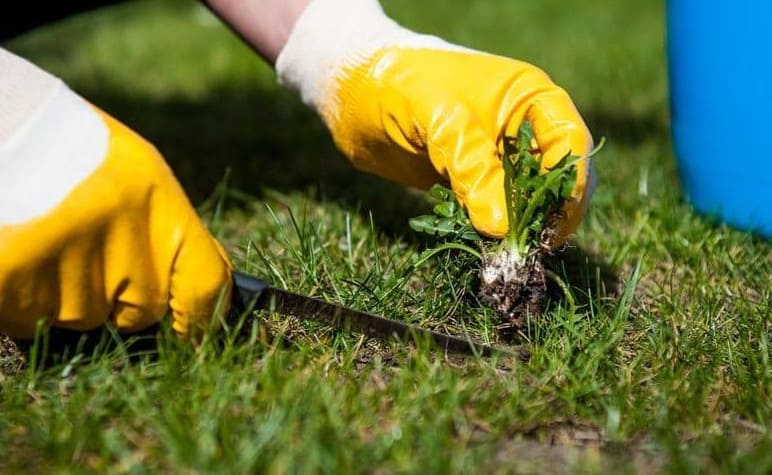Eco-Friendly Lawn Care
Contrary to the use of pesticides or insecticides in lawn maintenance, environmentally friendly lawn maintenance system entails the use of limited or no chemicals in lawn maintenance.
However, there is a misconception that if you use an environmentally friendly lawn care system you will not have green grass on your lawn due to weeds invasion! This is not the case as this system is also effective and has a lot of benefits.

One benefit of using this system is being eco-friendly. With controlled use of fertilizers and chemicals, this method benefits the ecosystem through:
- Promoting microbial activity – the use of less chemicals promotes microbial activity in the soil increasing fertility
- Prevents soil erosion as your grass gets thicker with time
- With improved microbial activity, soil aeration and fertility improves supporting a variety of plant species
- As the lawn develops, the grass helps in reducing the amount of carbon dioxide gas in the atmosphere since it’s a raw material of photosynthesis process

Secondly, this system is economical because it involves application of lawn fertilizer and spraying only once or twice during the summer. This reduces the amount of chemicals and fertilizer needed to maintain your lawn and hence reducing the total cost.
For you to get the best results when using this eco-friendly system, you need to control weeds and insects invasion to your lawn. Here are steps you need to follow to maintain your lawn:
- To avoid cutting more than a 1/3 of the blade each time, make sure you mow high up to 3 inches.
- It’s recommended you use a mulching lawn mower. The advantage of using this mower is to have mulched clippings of the grass that will later decompose to release nutrients. This will reduce the use of fertilizer and promote slow but steady growth of your lawn grass all year round.
- If you will have to fertilize your lawn, do not use nitrogenous fertilizers and do it once per year. If you fertilize your lawn often with nitrogenous fertilizers, you will have fast growth of the grass with weak roots and upon mowing, you may end up having patches.
- When using a mulching mower, remember to check the thickness of the clippings. You need to keep the thickness to around half an inch and not more to facilitate water penetration into the soil.
- Watering your lawn is also important. Watering the lawn sparingly is recommended to reduce water damage to your lawn and soil erosion. Therefore, water once or twice in a week and make sure that the water has penetrated to about 6-8 inches into the soil.
- When your lawn need levelling, mix top soil and compost manure to top-dress. This can be done when you are preparing to overseed your lawn. The top soil has a lot of nutrients and soil microorganisms which will promote microbial activity in your lawn. On the other hand, compost manure is free from chemicals enabling it create a conducive niche to the soil microorganisms to thrive in your lawn.
- Make sure you use the right grass varieties to suit the specific location. There are specific grass species to thrive in sunny or shady areas. If you cannot be able to determine the best variety, you can contact a lawn specialist for advice and suggestions.
- When the soil becomes compacted in your lawn, aerate the soil and add compost because it has microorganism which can help promote aeration.
- You can adopt a biological pest control method by introducing nematodes in your lawn. Nematodes feeds on Japanese beetles, European chafer, sod webworm, citrus root weevils and black vine weevil. This is the ideal method to maintain your lawn without the use of pesticides.
With awareness, most people have switched to environmentally friendly lawn care systems because they reduce the use of chemicals that affect our environmental.
For lawn care and maintenance services in Sydney, contact NBG Landscapes today!
